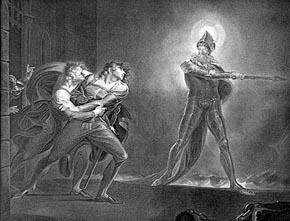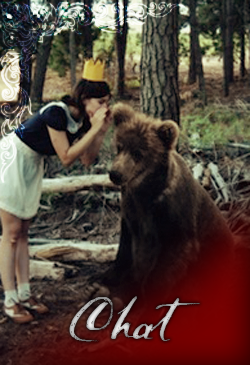Post by PIETER LINDHOLM on Mar 3, 2012 3:32:58 GMT -5
...Pieter Barrett Lindholm*
*There are more things in heaven and earth, Horatio,
Than are dreamt of in your philosophy.*
[/size]*There are more things in heaven and earth, Horatio,
Than are dreamt of in your philosophy.*


...basics*
name
Pieter Barrett Lindholm
nickname
People always seem to trip up on his name, despite the fact that it’s pronounced just like “Peter.” So, he’s not object to going by “Pete” on occasion, although he really doesn’t think the whole thing needs to be so difficult.
age
Nineteen
gender
He’s a male. Yeah. Definitely a man, last time he checked.
grade
Junior at Barrie
hometown
Walker, Minnesota
sexuality
Heterosexual
personification
Horatio
status
Dormant
face claim Colin Morgan
...appearance*
hair color
Blackish brown, usually cut on the shorter end of medium-length. It’s never in his eyes.
eye color
Bright, happy blue
build
Well. He’s a twig. He literally has next to no muscle on him, although he’s not quite at the point where he’s practically inverted. All his life, he’s been blessed (or cursed) with the metabolism of a sixteen year-old male triple-sport athlete. Unfortunately, however, that metabolism has managed to give him the illusion of muscle without actually providing any strength. Still, he prefers not to work out.
height
Five feet, ten inches
clothing style
He dresses nicely enough, albeit casually so. Jeans are just fine with him, as are sweaters and sweater vests (if they fit well on his skinny frame, he can pull them off quite well without coming off as gay, to be honest), and the occasional polo or button-down, when he has the time. He’s a fan of stripes, to be bluntly honest. Not to an extreme, or anything, but…he likes them quite a lot.
distinctive traits
THOSE CHEEKBONES. HOLY SHIT, MAN.
He also has really big ears. That’s a fun time.
...personal*
personality
Pieter doesn’t do guessing. Things are what they are, or they aren’t what they aren’t. It isn’t that he’s emotionally inept or stoically cold—far from it, in fact. The fact of the matter is just that he’s grown up coming up with his own thoughts and beliefs all his life, and doesn’t see much point in changing them for anything or anyone. Perhaps he’s a bit close-minded. He’d deny it, if anyone accused him of being so. Stubborn, maybe, is the better word. Although not in a mule-ish, arrogant way, either. Pieter is exceedingly humble in most ways, preferring discussion over argument and peace over ruckus. That bit, at least, could be attributed to the small town life he lead growing up, and the little farm he still remembers bits and pieces of where he was born.
In accordance with his complete distaste for all things floral, sugar-coated (philosophically speaking), or improvable, Pieter is a staunch atheist. It’s not something he shoves down people’s throats, or even advertises. He simply is what he is. Why believe in a God, he says, when there is so much wonder on Earth, which science has so gratefully placed right beneath our feet? There is simply no point. It’s a futile effort, religion, and simply an excuse for people to band together over something they might pretend they have in common in order to feel better about themselves as people when really, all they do is hold hands, raise their heads, and talk to silence. Although he holds no objections to the teachings of religions, Pieter finds great fault with the idea of them. It’s just about the only thing he’ll get into a truly heated debate about, really. Needless to say, growing up in a small town, his viewpoints weren’t always appreciated.
That being said, however, Peiter is exceedingly humble. It’s a trait that probably started with his foreignness in every sense of the word when he began grade school in Walker at age seven with literally no knowledge of English. He had to be quiet, polite and bright without knowing it, or he probably would have been kicked to a pulp, a scrawny little kid as himself. When he grew older, he remained quiet, generally speaking only when spoken to unless around someone younger than he or a peer. Pieter does not brag or boast. Sometimes it’s almost exasperating, just how little of his own efforts he is willing to take credit for, but when asked about why he’s more than happy to step back and let others revel in the shared glory of an A he most definitely earned, he shrugs. The reply is simple: “We have learned.” Apparently, he sees enough reward in that.
Needless to say, Pieter doesn’t like competition. Debates, he argues, do not count as such, because they are held for the purpose of intellectual gain by both parties.
Hand in hand with Pieter’s humbleness is his sense of loyalty. Instilled in him at a very young age once again by the move to America, Pieter feels a strong connection to his family and his Danish heritage, as well as those few friends he meets who prove themselves to be as like his brothers or sisters as Henrik and Katrine. To acquaintances he is neither aloof nor unfriendly. Growing up working in a bakery all his life, delivering breads to doors, working the front counter and on occasion helping his parents to translate those English words they still have difficulty with, he’s become quite the people-pleaser. That’s not to say he’s an extrovert by any means, but he knows how to handle himself around people of authority. In short, manners are certainly not foreign ideals.
When around those few close friends (and, on occasion, his siblings), Pieter has been known to come forth with a sharp tongue and chiding wit. Still, he keeps his sense of humor mostly to himself, if for the sake of not wishing to upset anyone of importance. It’s not particularly raunchy or rude, but his parents don’t always approve of the subtle jabs he tosses about now that he’s been somewhere bigger and bolder and shinier, and he doesn’t at all want to appear ungrateful, because he’s not.
past
Pieter Lindholm spent the first six-and-a-half years of his life in Suburb Copenhagen, Denmark, in a house that was, as most of those surrounding it, small. Agneta and Josef Lindholm owned a successful little bakery in the center of town which they had started together fifteen years prior upon meeting. Still, despite their cozy living situation and their bouncing, healthy baby boy, something just didn’t feel quite right. They had friends, and they had social gatherings and they had the best bread within a ten-mile radius, but there was more out there somewhere. There was still more even when little Henrick was born, and when fifteen months later, Katrine followed. Business was good and life was fine, but it could be better.
It could be better. It could be America.
Now, Walker, Minnesota is not the typical immigrant’s idea of “better,” let alone the typical American’s. A small town nestled up near Leech Lake, it consists of roughly three streets and four blocks, each separated by a one-light stoplight that really isn’t necessary anyhow, as hardly anyone drives. Franchises have no placed in Walker. McDonald’s is a foreign name. When the Lindholms moved into a house nested just behind the last street of the sleepy little town, they honestly thought they’d died and gone to heaven. When they bought a shop on the main street and painted Det Konditori above the door in dark maroon, they kissed, said “Jeg elsker dig” and began working as real, true American citizens with real, true American (albeit non-English speaking) children, they thought they had no need for searching at church for such a place because they’d already found it, right there beneath their feet.
Pieter was enrolled as a first grader at the local elementary school with only the capability to say “Hello” in English. His parents taught him what they knew as the year went on, but it was limited—they had only managed enough to get by with their bakery, having had no use for speaking such foreign words back home, despite their education in it growing up.
Consequently, Pieter was left to teach himself. It wasn’t a matter of teaching so much as listening, he found, and he picked up soon enough. The first two or three years of school were hard, particularly as schools in such small towns don’t typically have bilingual programs, and certainly not for children of Danish heritage. He grew up through elementary school a radically quiet boy, although not so much out of shyness as necessity and survival skill. If he did speak, it was with a heavy accent and much pause between his words. He was pushed in the mud or snow before he could even finish a sentence. Teachers took pity on him, however, once they learned he was not purposely ignoring their questions, but trying to work out exactly what “inches” were, and figuring out how to say “Undskyld, frøken, jeg ikke kender svaret” in English before the bell to end the day rang.
In their pity, they gave him books. It was near impossible to stay after school and get help, what with his being needed back home at the bakery even at age eight, but he was a determined boy eager to impress both his teachers and parents, and so he read. Books about Jack, Jill, and Spot turned to tales of hungry caterpillars and some strange aardvark named Arthur and soon, he found he could speak the words “Hello, my name is Pieter Lindholm. Welcome to Det Konditori, how may I be of assistance?” just as fast as his American classmates. English was, for years, something very akin to food for Pieter. He brought textbooks to the bakery counter, taught his little brother and sister to speak at the dinner table, helped his parents please their customers. He wasn’t a brilliant boy, but he was determined, and so, as all things one passionately focuses on, it eventually became easy.
When Pieter reached middle school, he could speak impeccably. He was no longer the kid with the accent, but the kid with the accented parents, the one whose family owned the bakery everyone liked to go to on Sunday mornings for breakfast after church. The one right next to the ice cream shop where they put butter cookies on the straw of your milkshake.
When he reached high school, he had a few friends. Not many, but enough to call himself sociable. He still worked at the bakery after school and on weekend mornings, but wasn’t one to cause a fuss about the necessary hours. After all, his parents paid him. A bit less than the two hired hands, but it was still plenty. Enough, in fact, that when he decided that perhaps he wanted to go away to University, it wasn’t such a ridiculous option.
present
The search for a school was long and difficult and stressful (although it would not have been the last had his mother not insisted for so long that he stay near home, essentially requesting that he study all on his own at the headwaters of the Mississippi River, a fact she couldn’t seem to comprehend no matter how many times he explained, either in English or Danish). Eventually, however, it lead him to New York. First, to NYU, then Columbia, and finally, Barrie University. The campus was an instant fit. The minute he set foot in the quad, he knew where he wanted to spend the next four years of his life, and nothing his parents said could stop him. Truth be told, his father was entirely on his side—he was not offended in the slightest that Pieter didn’t wish to take up the family business, believing him to already have done a great service in learning English so well and helping out all those weekends he could have gone to school football games.
Pieter has attended Barrie for the past two years, and found them to be “absolute perfection.” Although he went in to study computer science, he’s since switched majors to psychology. A bit of a one-eighty, yes, but he’s found it’s much more interesting to be able to prove what a human is thinking, instead of verify that a machine can be programmed. He’s opened up a bit since moving away from home, and although he still clings tight to his humble roots, finds himself to be talking more, meeting more people, sticking out because of the slight Danish lilt still left in his voice and not minding all too much that it makes him unique. In all, he feels at home. It’s even crossed his mind that perhaps he’d like to stay here once he graduates, or perhaps travel a bit around the world—neither option has yet been told to his parents.
family
Agneta Lindholm. Mother. 53.
Josef Lindholm. Father. 60.
Henrik Lindholm. Brother. 16.
Katrine Lindholm. Sister. 15.
likes
- Science
- Debates, although not the heated kind
- Danish pastries, or basically anything bread-like that his mother makes. They’re just not the same in New York, but he’ll eat them here anyway, because the smell reminds him of home.
- Learning. He’s not a savage bookworm or anything, but it’s always interesting to hear conflicting viewpoints.
- Psychology. Really, he likes explanations
- His family, as they are all so close
- Walker, Minnesota. As exciting and big and new as New York is, there’s always something comforting about going home and falling asleep in his own bed.
- ScienceNews.com. He’s a little obsessive about checking for new articles, truth be told.
- Chivalry. It’s not dead. He promises.
- When he speaks Danish and other people can understand him. It’s a wonderful feeling.
dislikes
- Religion
- Leech Lake. Well, not the lake. Just the leeches. The name doesn’t lie.
- Pizza. Can’t stand the stuff.freak
- People who shove their opinions down others’ throats without any hesitation. Dignity is the only way to win any title worth achieving.
- People who don’t express their opinions. There is a fine line between this and the point above, but he is very firm about treading it carefully.
- Taking credit for things. Spotlights make him uncomfortable.
- Dormitories. As much as he likes the college experience, he can do without the cramped space and horrible roommate he had freshman year, thank you. Living off-campus is infinitely better.
other notes TEXT HERE
...literature*
book title
Hamlet
backstory
Basically, Horatio and Hamlet are bros4life, and so when Horatio tells Hamlet “Yo, I think I saw your dead dad waltzing around the balcony the other night, you wanna go see him?” naturally, Hamlet trusts him and agrees. Cue chaos, madness, murders, and debochery. Truth be told, Horatio is about the only sane person in the whole play, and because of this—naturally—he stays as loyal to the most insane person possible (Hamlet), because that’s what friends are for. Apparently it sort of pays off in the end, because even though his best bro dies in his arms, he gets to live and stuff, which is sort of good, if you’re into that sort of thing. Basically, he’s just always there. Hamlet + Horatio = brotp fo lyyyfffeeee.
...roleplayer*
name Scout
age TEXT HERE
gender TEXT HERE
rp experience TEXT HERE
how you found ouac TEXT HERE
rp sample AT LEAST THREE PARAGRAPHS












